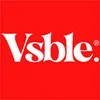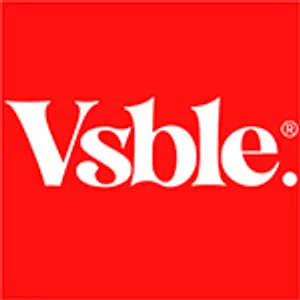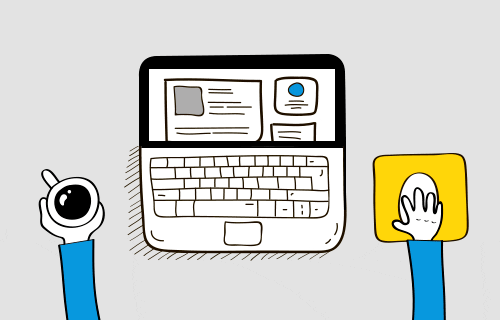We define networking as forming relationships with others who share common professional interests. It’s a process by which we make acquaintances and exchange information in hopes of helping one another level up in our careers and find new opportunities.
Of course, networking for creatives looks a bit different — especially online.
We have many digital platforms at our fingertips where we can generate compelling content and make bold statements to attract others to us. It feels like a race to the top rather than a sea of wholesome opportunities to show our work, collaborate, and evolve.
So, as creatives, how do we start networking effectively to expand our career-related horizons?
Keep reading to find out!
The Importance of Networking For Creative Professionals
There are only ever upsides to expanding our professional networks. However, traditional networking is often overlooked by creative professionals like artists, designers, photographers, developers, etc. The reasons may vary, but this doesn’t stop networking from being a valuable asset to any field — creative or not.
Networking will always provide the following:
● Insights into your career path
● Opportunities to collaborate, find mentorship, and get career advice
● Opportunities to build your reputation and garner even more business (this is especially beneficial if you’re a freelancer)
● A way to establish new connections that get you out of your comfort zone, studio, and house
● A pathway to building relationships with larger organizations
Networking can also open the door to forming new friendships. While making new friends isn’t necessarily the goal, it is a bonus.
5 Networking Strategies for Creative Professionals
The question now is, what networking strategies should creative professionals utilize to further their overall careers?
These are our top #:
1. Keep Specific Career Goals in Mind
Meeting like-minded people within similar industries is always a treat. However, the overall goal of networking is to further your career, not just learn about others’ careers or show your face to the public more often.
So, when planning to attend a networking event, keep your own goals in mind and develop a game plan. If you’re unsure as to what your goal is, you can start by asking yourself the following:
● What are you trying to accomplish in your career?
● Do you want to get more commission-based work?
● Do you want to look for solutions to topics that impact your industry?
● Are you looking to leave the freelance world and join an organization?
● Are you looking to start your own business?
As far as networking strategies go, understanding your own creative career goals and how to achieve them is the key to opening the doors you’ll want to walk through.
2. Make Sure Your Social Profiles Stand Out
If you’re looking to network online or even in person, expect the people you connect with to take a look at your social profiles. Whether it’s your LinkedIn account or social media account, you want to put your best face and portfolio pieces forward.
So, update your socials to reflect who you are as a creative and your most significant accomplishments thus far. A professional headshot and a well-crafted description of who you are and what you do are also essential.
It’s always a good idea to view your profile from the perspective of potential employers and colleagues.
3. Personalize Your Networking Messages
Text can be read in various ways, so avoid impersonal and generic messages. If your messages come across as dull or robotic, the people you’re trying to connect with likely assume it’s spam and ignore it.
The best way to curate personalized messages that will make other people want to remain in your professional circle is to find out what you have in common with them. This commonality can be of educational interests, social causes, and other interests that will give you something to talk about on a more personal level.
Of course, you’ll want to start each message by explaining your reason for reaching out, but the personal touches will drive that message home.
4. Leverage Online Communities
Most people don’t realize this, but many online communities outside social media platforms are perfect for networking for creative professionals.
Some of these communities include:
● Slack
● Facebook groups
● GitHub (where you can contribute to open-source projects if you’re a developer and connect with other developers)
It’s also a good idea to look for virtual meetups and events, as they can connect you with people from all over the world, not just those who live within your city or state.
Of course, the goal is to participate proactively in the online communities you choose to join. Share your knowledge in threads, ask questions, contribute to the project, and take the time to promote others who align with your core values.
5. Work On Your Personal Branding
Branding today is more critical than ever. Your personal brand is intentional — it’s how you want people to see you and recognize you on a perpetual basis. By effectively branding yourself, you’ll give others something more tangible to relate to and align with, which will carry you further in your career.
Creating a personal brand takes a lot of effort. To simplify the process, you’ll want to do the following:
● Define your purpose, vision, and long-term mission
● Decide what you want to be known for
● Define your ideal audience
● Curate a personal narrative
● Build a content strategy that embodies your brand and communicates your brand story
It’ll take some and a lot of effort, but creating a personal brand is worth it. Networking will become much more manageable when others have something to positively associate you with.
The Bottom Line
If there’s one thing all creative professionals need to bring their online networking strategies full circle, it’s an SEO-optimized website that’s also GDPR-compliant. Vsble provides the tools to build a free, fully loaded website and easy to assemble for busy creatives. Get started with Vsble today and watch your career climb sky-high.



